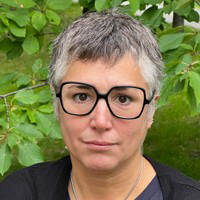KTH Royal Institute of Technology
Sustainable fabrication of advanced photonic components through glass 3D printing
Industrial project
Postdoc
Open
Research question
Although 3D printing technologies for metals, plastics, ceramics, and even bio-materials are commercially available today, the capability to 3D print glass, considered the last frontier in additive manufacturing, remain limited. Initiated through an SSF funded project, Nobula successfully developed the Direct Glass Laser Deposition (DGLDTM) technique, providing a novel laser-based glass 3D printer that utilizes thin glass filaments as feedstock. Through direct laser heating using CO2-lasers, processing temperatures above 2000 °C are easily achieved, enabling printing of fused silica glass. Filaments of fused silica are easily manufactured using commercial optical fiber draw towers. However, fabricating filaments of other types of glass, e.g., borosilicate or soda-lime glass, has been a challenge.
The motivation of this project is to study the filament fabrication process for different types of glass suitable for 3D printing, both regarding material composition and structures. The vision is to expand the potential applications of glass 3D printing, with a focus on sustainability. To facilitate this study, the laser-based fiber draw tower developed at KTH will be used for material studies regarding filament fabrication, which will subsequently be evaluated using the glass 3D printers at Nobula.
Sustainability aspects
Glass is mainly made up of silicon and oxygen, the two most abundant materials on earth, and is 100% recyclable. However, glass fabrication is well known to be highly energy intensive, with a significant CO2 footprint and generates chemical waste bi-products. The Nobula 3D printer is very energy efficient, consuming less than 200 W of electrical power during printing, and requires no chemicals. The main focus within this project will be placed on exploring different types of glass used for printing, towards expanding the possibilities for sustainable glass fabrication through 3D printing

KTH Royal Institute of Technology
Carlota Canalias
Professor
cc@biox.kth.se

Nobula 3D AB
Michael Fokine
Industrial PI
michael@nobula3d.com
Explore projects under the WISE program
WISE drives the development of future materials science at the international forefront. The research should lead to the development of sustainable and efficient materials to solve some of today's major challenges, primary sustainability. On this page you can read more about our research projects.
Explore projects